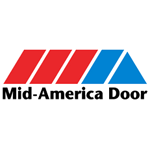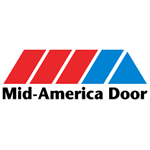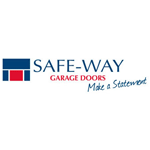Your garage door is one of the most frequently used moving parts of your home, yet it’s often overlooked until something goes wrong. It provides security for your vehicles and belongings, adds curb appeal, and ensures smooth daily convenience. But like any mechanical system, garage doors wear down over time. Ignoring early warning signs can lead to costly repairs or even safety hazards.
In this article, we’ll discuss the most common warning signs of garage door problems, what causes them, when to call a professional technician, and how regular maintenance can keep your door working efficiently and safely.
Why Paying Attention to Garage Door Problems Matters
A well-functioning garage door doesn’t just make life easier it keeps your family safe and your property secure. When components like springs, cables, or sensors begin to fail, they can cause the door to malfunction or suddenly collapse. This poses significant safety risks and can lead to expensive damage if not caught early.
Early detection is key. Recognizing subtle garage door repair signs like strange noises, jerky movement, or inconsistent opening allows homeowners to address small issues before they escalate. Regular attention to these signals can extend your door’s lifespan and prevent inconvenient breakdowns.
This article will walk you through the key signs of garage door issues you shouldn’t ignore, their possible causes, and practical steps to fix or prevent them.
Common Warning Signs of Garage Door Problems
Unusual Noises or Grinding Sounds
Your garage door should open and close smoothly and quietly. If you start hearing grinding, squeaking, or rattling noises, something isn’t right. These sounds can result from worn-out rollers, loose hardware, or motor strain in automatic openers.
- Squeaking or screeching: Usually indicates metal parts rubbing together and needing lubrication.
- Grinding: Often a sign of worn-out rollers or misaligned tracks.
- Banging or popping: Could mean a spring is wearing out and may soon fail.
If the noise persists after applying lubricant or tightening visible bolts, it’s time to have a garage door technician inspect it. Continuing to operate a noisy door can worsen the damage or cause a mechanical failure.
Slow or Jerky Door Movement
If your garage door moves slowly, hesitates mid-way, or shakes while operating, this could signal track misalignment, spring tension problems, or poor lubrication. A smooth, steady motion is normal; anything less means friction or imbalance is at play.
Common causes include:
- Dirt or debris in the track
- Rusted rollers
- Worn-out motor gears
- Weak or overstretched springs
Avoid forcing the door open or closed, as this can strain the motor. Regular maintenance and lubrication usually solve mild cases, but if the door continues to stutter, seek professional servicing.
Door Doesn’t Open or Close Fully
When your garage door stops short of fully opening or closing, it’s often due to sensor misalignment, limit setting errors, or damaged tracks. Modern doors have safety sensors that stop movement if something is detected in the door’s path. If those sensors are dirty or misaligned, the door might behave unpredictably.
Additionally, incorrect limit settings in your opener can prevent the door from completing its cycle. Always ensure that both tracks are clear of obstructions and sensors are properly aligned.
Ignoring this problem can lead to safety hazards especially if the door unexpectedly closes on a vehicle or person.
Sagging or Uneven Door Panels
If one side of your garage door looks lower than the other when it’s closed, you’re likely dealing with spring imbalance or structural warping. An unbalanced door strains the opener and can cause premature wear.
How to test your door balance:
- Disconnect the automatic opener.
- Lift the door manually halfway.
- If it stays in place, it’s balanced. If it falls or rises, the springs are uneven and need adjustment.
Balancing garage door springs is not a DIY-friendly task. It requires precise tools and should only be handled by a trained technician to prevent injury.
Excessive Vibration or Shaking During Operation
Excessive vibration is another warning sign of garage door problems. A door that rattles or shakes while moving may have loose bolts, worn rollers, or bent tracks. These issues may seem minor at first but can escalate quickly.
Over time, vibration can loosen connections further and damage the opener’s internal mechanisms. Tightening hardware and replacing worn rollers often restores smooth operation. If vibration persists, the issue may lie deeper in the track alignment or motor mount.
Remote or Keypad Malfunctions
If your garage door remote or keypad stops working, it doesn’t always mean the batteries are dead. The issue might stem from electrical interference, wiring faults, or even receiver misalignment.
Start with these quick checks:
- Replace batteries and reprogram the remote.
- Ensure the antenna on the motor unit isn’t blocked.
- Check if other nearby electronics are interfering with the signal.
If the issue persists, a professional should examine the system. Electrical malfunctions can affect safety features and cause intermittent operation.
Visible Damage to Springs, Cables, or Tracks
Your garage door’s springs and cables bear enormous tension. If you notice frayed cables, rusty springs, or bent tracks, stop using the door immediately. These parts can snap unexpectedly and cause severe injuries or property damage.
Broken torsion springs, in particular, should only be replaced by a professional technician. Attempting DIY repairs can be extremely dangerous due to the high-tension mechanisms involved.
Higher Energy Bills or Drafts Around the Garage Door
A garage door that doesn’t seal properly can let in outside air, leading to drafts, temperature fluctuations, and higher energy costs. Worn weatherstripping, damaged seals, or gaps along the door’s edges often cause this problem.
Replacing worn seals and insulating the door can improve comfort and reduce utility expenses. This is especially important if your garage connects directly to your home.
What Causes These Garage Door Problems?
Understanding the root causes of these issues helps prevent them in the future. Here are some of the most common reasons:
- Aging Components: Springs, cables, and rollers naturally wear out after thousands of cycles.
- Lack of Maintenance: Skipping lubrication or inspections allows dirt and rust to build up, causing friction and wear.
- Weather-Related Damage: Moisture, rust, and temperature changes can cause warping or corrosion.
- Improper Installation: If the door or tracks were not installed level, operational problems can appear early.
- Unbalanced Tension: Uneven spring tension causes jerky motion and premature part failure.
When to Call a Professional Technician
Some garage door problems are safe for homeowners to handle, such as cleaning sensors or lubricating rollers. But others especially those involving springs, cables, or motors require a professional’s expertise.
You should contact a garage door repair technician if:
- The door won’t open or close at all.
- You hear loud bangs or see broken springs.
- The door looks uneven or off-track.
- The opener motor strains or overheats.
Working with high-tension components can be dangerous without proper tools and training. Always choose a licensed and insured garage door service provider. Check online reviews, verify warranties, and confirm that they offer emergency repair services if needed.
Preventive Maintenance Tips to Avoid Future Issues
Regular care can extend your garage door’s life and reduce unexpected failures. Here are some practical garage door maintenance tips:
- Inspect monthly: Look for rust, fraying cables, or loose bolts.
- Lubricate moving parts: Apply silicone-based lubricant to rollers, hinges, and springs every few months.
- Clean photo-eye sensors: Dust or spider webs can block sensors and prevent proper door operation.
- Tighten hardware: Check brackets, bolts, and screws regularly to prevent vibration.
- Test balance and auto-reverse: Ensure safety systems are functioning correctly.
- Schedule annual tune-ups: Professional maintenance can identify wear before it becomes serious.
By dedicating just a little time to upkeep, you can save hundreds in repairs and ensure long-term safety.
Stay Proactive to Keep Your Garage Door Safe and Reliable
Garage doors are essential yet often neglected parts of the home. By staying alert to these warning signs of garage door problems, you can catch issues early and avoid costly emergencies. From unusual noises to uneven panels and sensor malfunctions, each signal tells you something about the health of your door.
Don’t wait until your garage door stops working completely. Stay proactive, perform regular maintenance, and call a trusted technician when needed.
Schedule a professional inspection today to keep your door running smoothly and your family safe.
FAQ Section (SEO Boost)
Q1. What are the most common garage door problems?
The most frequent issues include broken springs, worn rollers, noisy operation, and misaligned sensors. Regular maintenance helps prevent most of these problems.
Q2. How do I know if my garage door spring is bad?
If your door feels heavy, opens unevenly, or doesn’t stay halfway open, the spring may be broken or unbalanced.
Q3. Can I fix garage door problems myself?
Minor tasks like cleaning tracks and lubricating parts are safe DIY jobs. However, spring or cable repairs should always be handled by professionals.
Q4. How often should I have my garage door serviced?
An annual inspection by a certified technician is recommended to ensure optimal performance and safety.













































